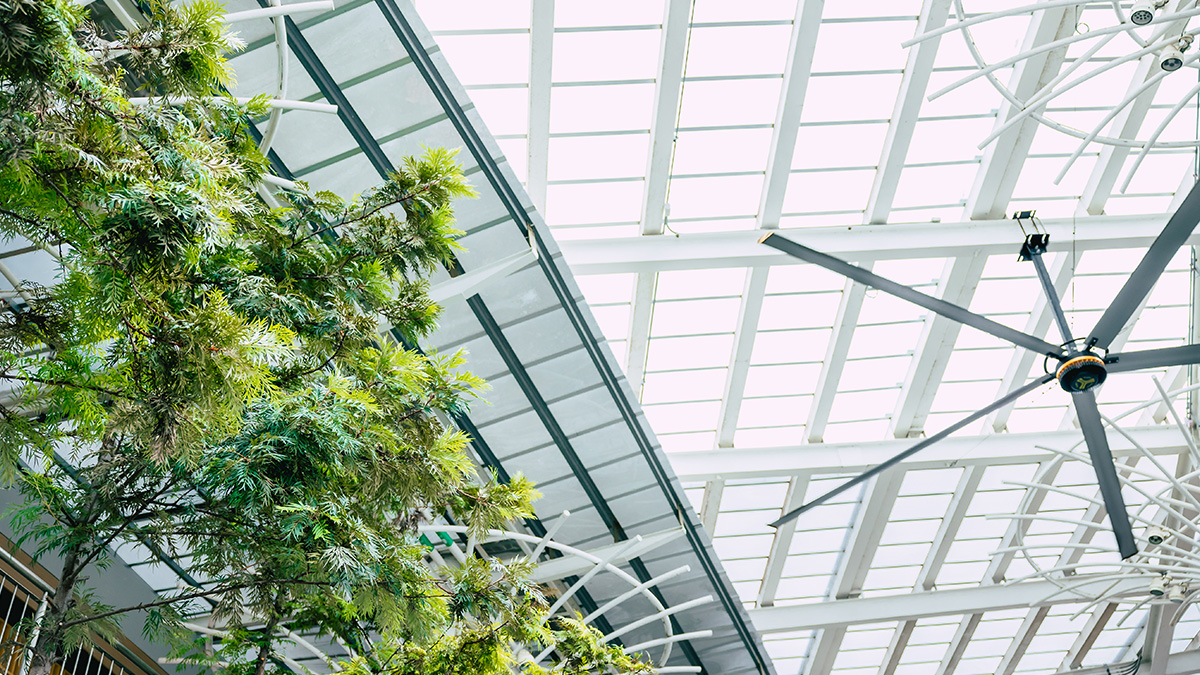
In recent years, the healthcare and hospitality industries have seen a growing trend in the demand for energy efficiency and sustainability initiatives. To reduce their environmental impact, many of these organizations are beginning to implement strategies such as reducing energy consumption, utilizing more renewable resources, switching to eco-friendly cleaning products, and incentivizing customers to act responsibly.
From hotels providing LED lighting to hospitals utilizing solar power, below are some of the most common “green” initiatives being implemented in these industries.
Hospitals
One of the most simple and effective ways for hospitals to go green is by reducing their overall energy consumption. This can be done through easy actions such as turning off lights when rooms are unoccupied or replacing inefficient appliances with modern, more efficient models. Replacing outdated appliances includes installing energy-efficient lighting and employing new other energy conservation technologies, such as LED lights and motion-sensing light switches for further energy efficiency. In addition to reducing energy consumption, many hospitals are investing in renewable energy sources such as solar power, geothermal systems, and fuel cells as they look to reduce their dependence on fossil fuels and help offset electricity costs. Finally, many hospital buildings have implemented rainwater harvesting systems to collect rainwater for reuse.
Hospitals are also engaging in green cleaning initiatives by using environmentally-friendly cleaning products that reduce the use of harsh chemicals and toxins. This helps reduce air and water pollution, while providing a healthier environment for patients.
Retirement Communities
Similar to hospitals, retirement communities are also focused on energy conservation, with many of them installing solar panels and more energy-efficient lights and appliances. Retirement communities are also transitioning their building designs and materials to feature more eco-friendly options by simply positioning windows strategically to maximize natural lighting, using building materials such as recycled wood or stone, or installing low-flow toilets and showerheads to reduce water usage.
Many of these facilities are also looking at ways to reduce food waste by composting leftovers and using reusable plates instead of disposable ones in cafeterias. Retirement communities are also prioritizing the use of local, organic food options whenever possible, in order to reduce their dependence on imported and processed food.
Hotels
Recently, we’ve seen hotel chains become some of the biggest adopters of green initiatives. Many hotels are switching to LED lighting and motion-sensing light switches, as well as utilizing energy-efficient thermostats that adjust the temperature depending on occupancy levels. Hotels are also turning to solar to provide power for laundry rooms and outdoor amenities.
From a guest’s perspective, hotels are implementing green initiatives such as waste reduction programs, linen reuse programs, eco-friendly cleaning products, and pesticide free gardens. By engaging and educating guests on sustainability best practices, hotels are able to encourage eco-friendly practices beyond just hotel stays.
Get Started Going Green
As the world moves towards a more sustainable future, it’s encouraging to see organizations within the healthcare and hospitality industries lead the way. By investing in energy-efficient technologies, green cleaning initiatives, and waste reduction programs, these organizations are making a big difference in their sustainability efforts. It’s clear that with continued investment in renewable energy sources and green initiatives, the healthcare and hospitality industries will continue to make strides towards a much greener future.
If you’re looking for ways to go green, see what Dalrada Energy Services has to offer by clicking here.

